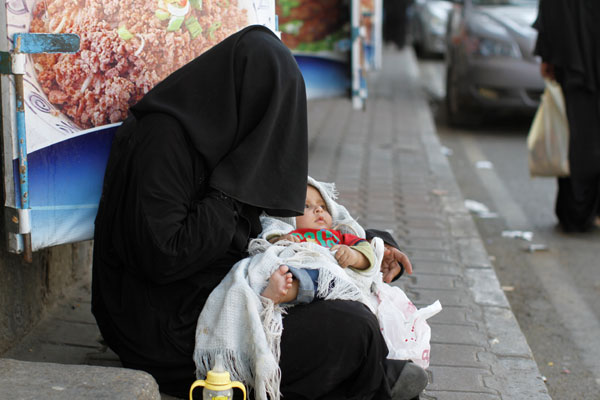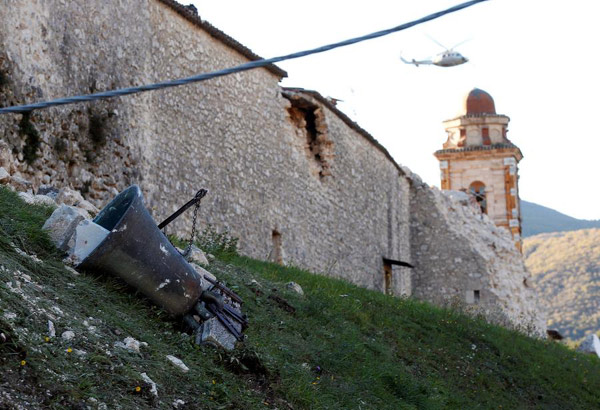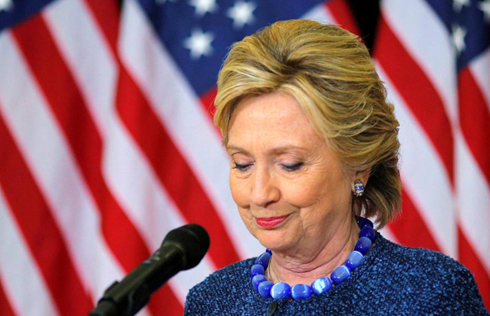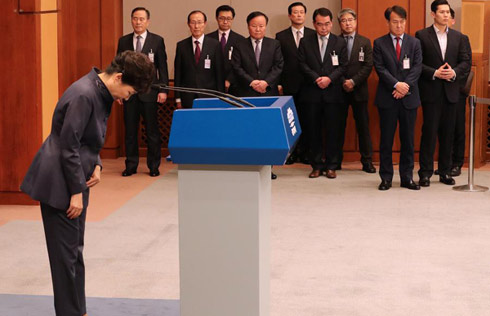Ceasefire violations deepen uncertainty of peace process in Yemen
 |
|
A woman begs along a street in Sanaa, Yemen, October 20, 2016. [Photo/Agencies] |
A day later, the warring parties came back to the peace table in Kuwait and in June the UN special envoy said that "after extensive discussions with the participants, the main principles that will guide the next phase of Yemeni talks had been established."
Talks continued while Houthi group and the Saudi-led coalition accused each other of violating the ceasefires.
On Oct. 17, the UN declared that a 72-hour ceasefire between Houthi fighters and their rival Saudi-backed exiled government forces will take effect at 2359 local time (2059 GMT) on Oct. 19.
However, the ceasefire became fragile after the warring sides traded accusations of breaching it.
The conflict in Yemen began after Arab-spring style 2011 mass protests that eventually forced former President Ali Abdullah Saleh out of power.
The Houthis, supported by Saleh, seized the Yemeni capital Sana'a and some other Yemeni cities in September 2014, forcing President Abd-Rabbu Mansour Hadi and his government into exile.
The Houthis and their ally forces loyal to Saleh have controlled most of Yemen's northern regions since September 2014, while the Saudi-backed Hadi's government has worked with its tribal allies in the southern provinces they recaptured from Houthi rebels.
The Saudi-led coalition intervened in Yemen's conflict in March 2015 with an air force campaign to restore Hadi to the power and roll back Houthi gains.
The 19-month civil war has killed over 10,000 people, mostly civilians.
- Yemen Houthi rebels welcome UN-proposed 72-hour ceasefire
- Two Americans held in Yemen released and flown to Oman
- Yemen Houthi rebels deny attacking US warship
- Pentagon vows to respond to attempted missile attacks at US destroyer near Yemen
- US Navy ship targeted in failed missile attack from Yemen
- Saudi-led coalition denies striking funeral in Yemen's capital

















